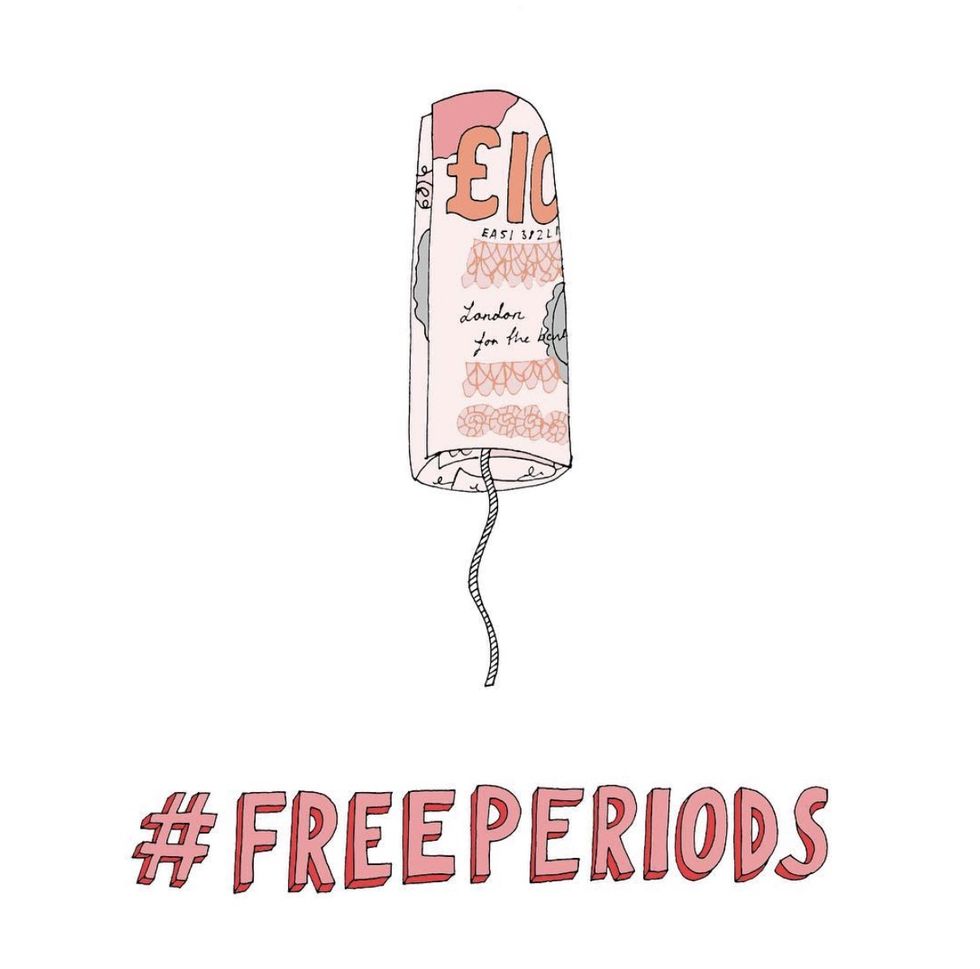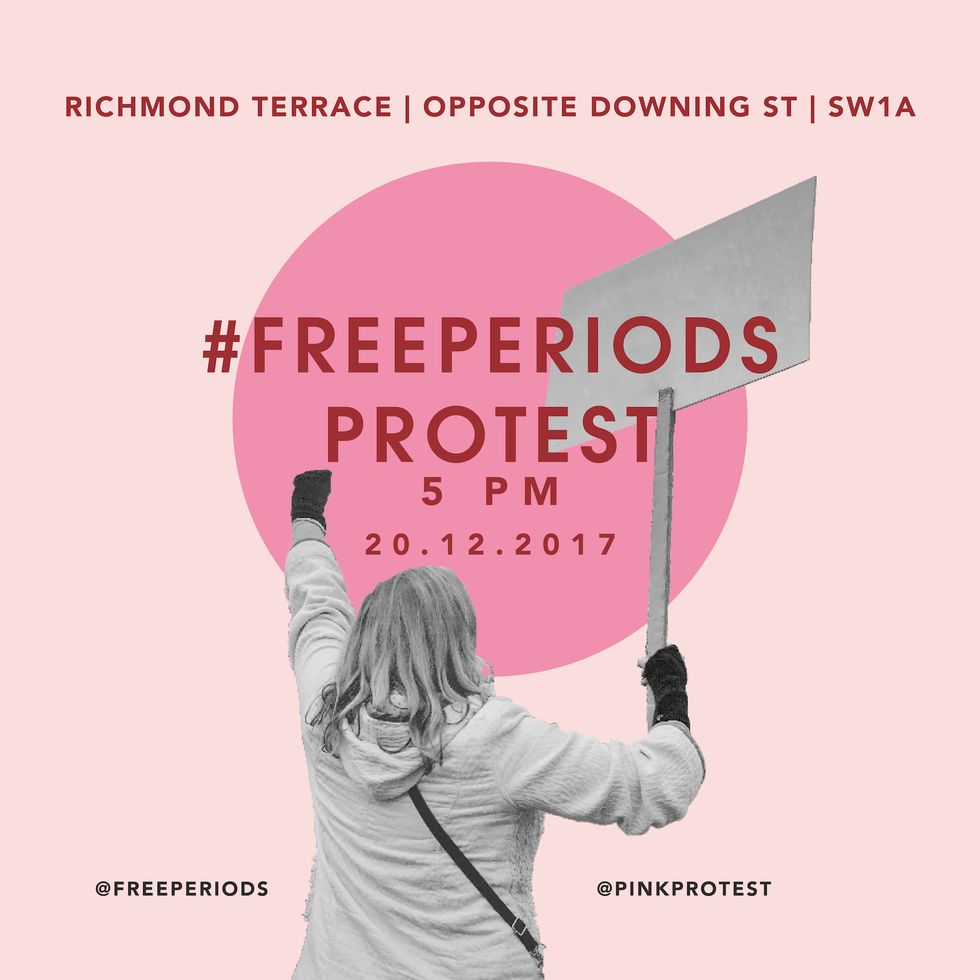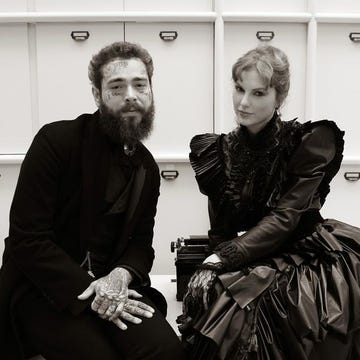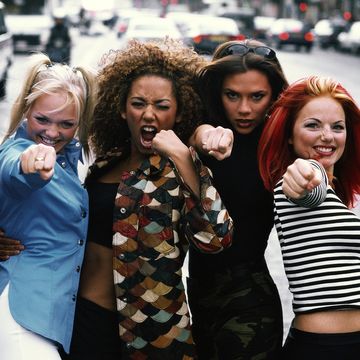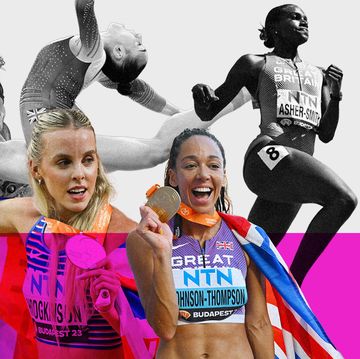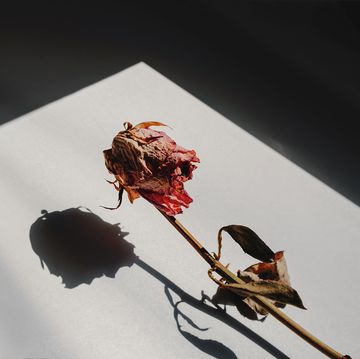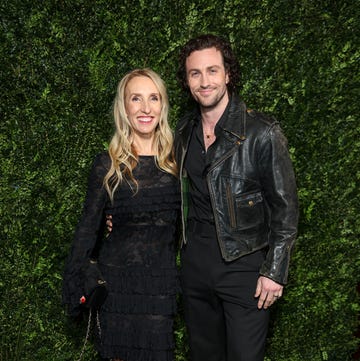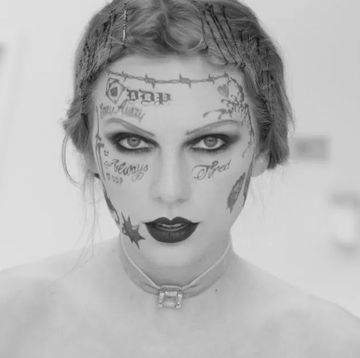When I call Amika George, she's escaped off into a quiet, if slightly echoey room. 'We're having Christmas lunch, so it might get a bit noisey,' she apologises.
Which all sounds very normal, until you remember George is 18-years-old. She's just 'escaped' from sprouts in the school hall and chitchatting with her best mates.
But there's a very good reason for dragging her away: George is single-handedly fighting for teenage girls to be given the right to free sanitary products. Why? One in 10 disadvantaged girls in the UK can't afford tampons, according to Plan International UK.
Back in March, the North London resident read a study published by the charity 'Freedom4Girls' that revealed girls are missing school because they can't afford sanitary products. Instead, they were sellotaping tissue to their underwear or stuffing their pants with socks and old dirty rags. The UK charity usually provides products to women and girls in Kenya, but was approached by a school in Leeds after staff members raised concerns about regular absenteeism among female pupils.
'I couldn't believe what I'd read,' she says, 'and it wasn't just Leeds, it was something that was happening on my doorstep too.'
The phenomenon known as 'Period Poverty' – an umbrella term used to describe a lack of access to feminine hygiene products – was once prevalent in third world countries, but that's simply no longer the case. In the UK, more young women than ever are struggling to afford sanitary products.
'This should not be happening,' says George. 'This is a basic need for women on their period. It's not a divisive issue, it's not right and it can't be justified. These girls need our help.'
Instead of simply firing off an angry Tweet, she decided to do something about it. Like, actually do something about it. In April, just one month later, she started her campaign – #FreePeriods – which petitions the UK Government to give free sanitary products to children on free school meals.
The campaign, which you can find on Change.org, already has nearly 85,000 signatures and has seen support from MPs including Labour's Jess Phillips and the Liberal Democrats' Sarah Olney. In fact, the Liberal Democrats, Green Party and Women's Equality Party have all included a pledge to end period poverty in their manifesto, while Labour pledged £10m to provide free products in schools, colleges and universities in the UK.
Which, says George, proves this isn't a topic political parties need fight over. 'Period poverty is not a party policy. As in, it's not something that one party would characteristically do and another wouldn't; it's something everyone should unite on and fight together. So I find it really shocking that the Conservatives haven't done anything about it yet.'
In a bid to change this, George has arranged a peaceful protest to take place in Parliament Square, London, on 20th December (from 5-8pm). Together with the Pink Protest (a collective of activists), they're calling on Theresa May, and the Conservative government, to end poverty period; everyone who goes is encouraged to wear red in support of the girls who can't be there themselves. Model Adwoa Aboah, Daisy Lowe and YouTube superstar Tanya Burr are confirmed as speakers.
The #FreePeriods campaign proposes the approximate cost of providing girls with free sanitary care would be £4.78m (based on the assumption that the average woman/girl uses up between 4 and 5 products for each day they menstruate, and menstruates for 68 days per year). Sounds like a lot, sure but, as their website explains, the Ministry of Defence's budget for trident in 2016/17 was an estimated £35 billion. Arguably small fry, in comparison.
But George's campaign isn't just about political change: it's about reshaping the way we talk – and think – about menstruation.
'The taboo about periods has a lot to answer for,' she says. 'The embarrassment and shame that all girls and women – even men and boys – feel about periods is really crippling and it stops young girls from coming forward.'
'Even more, it adds to this patriarchal sense that periods are solely a female issue and therefore we're not allowed to talk about periods with our friends, or family or sisters or mums or whatever. And that's so wrong, because they are a totally normal process. One in two people will go through a period and it's just ridiculous that we think they're disgusting and gross.'
If men bled every month, would we have this problem?
George laughs.
'No, definitely not. If men had periods, all menstrual products would be free – and they would have been for a long time.'
Still, she's battling on. The quickest and easiest way to normalise the conversation around menstruation? Talk. And don't stop talking until the word 'period' is as every day as asking for a cup of coffee.
'We are being silenced about our periods, and if we can do the opposite of that, it'll help get rid of the taboo. Since I started this campaign, I've been way more open with my brother, which he hasn't always been happy about, but I think it helps. Even if the details are a bit disgusting or gory, just talk about periods and make people realise that they're the most natural thing in the world.'
To find out more about Amika's campaign, #FreePeriods and details of tomorrow's protest, visit the website freeperiods.org.
You can also sign up to the newsletter and email and tweet Education Secretary Justine Greening, or sign the #FreePeriods petition here.


